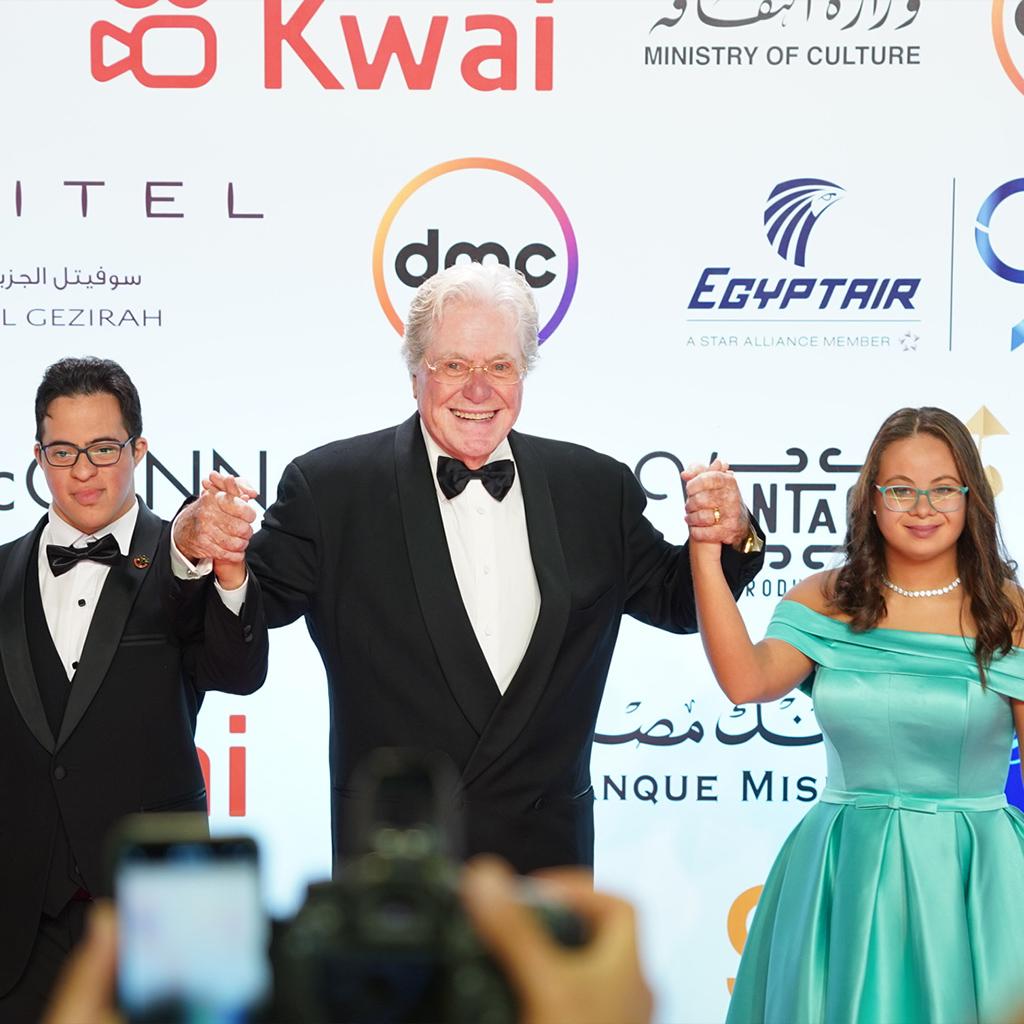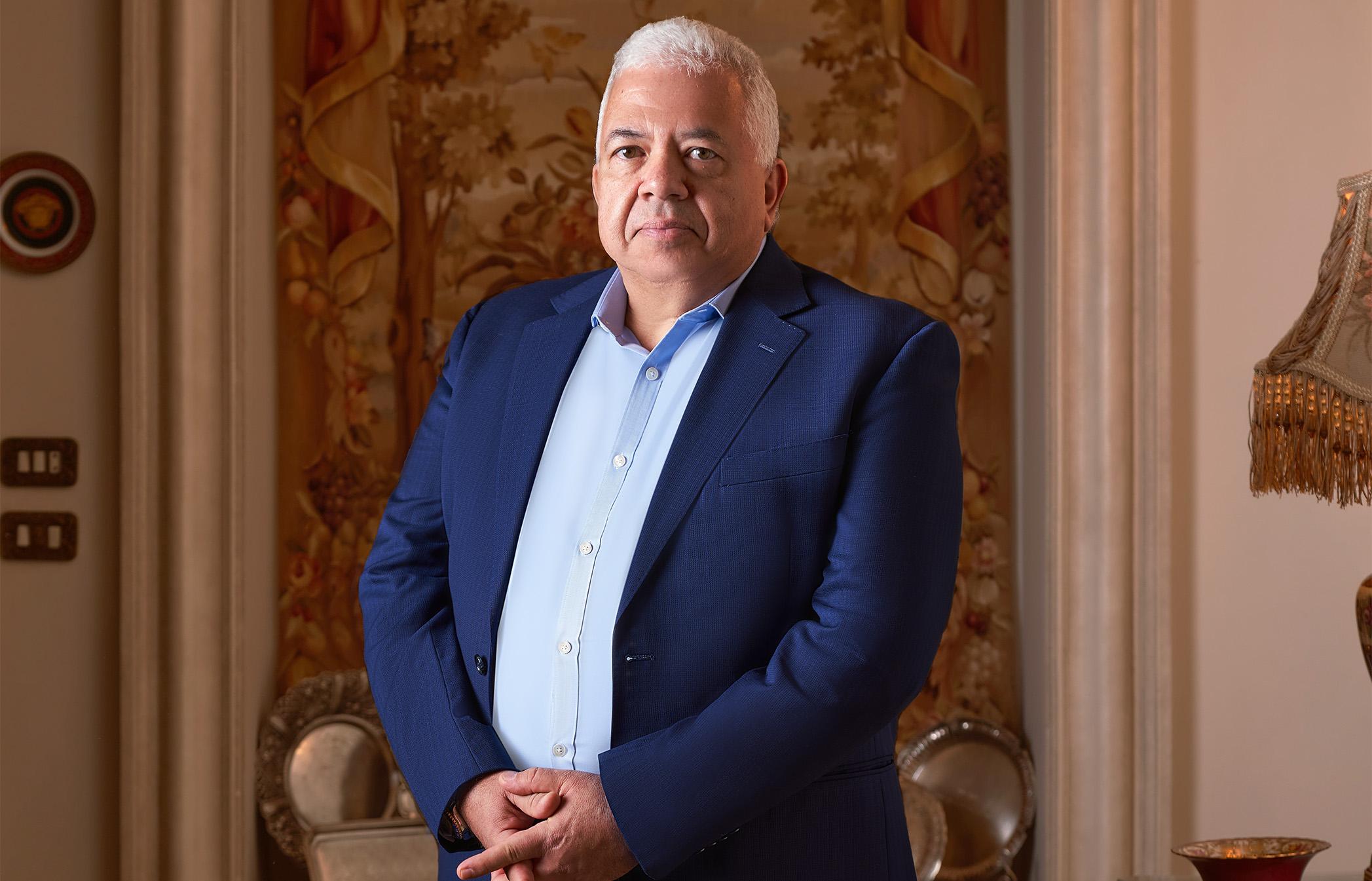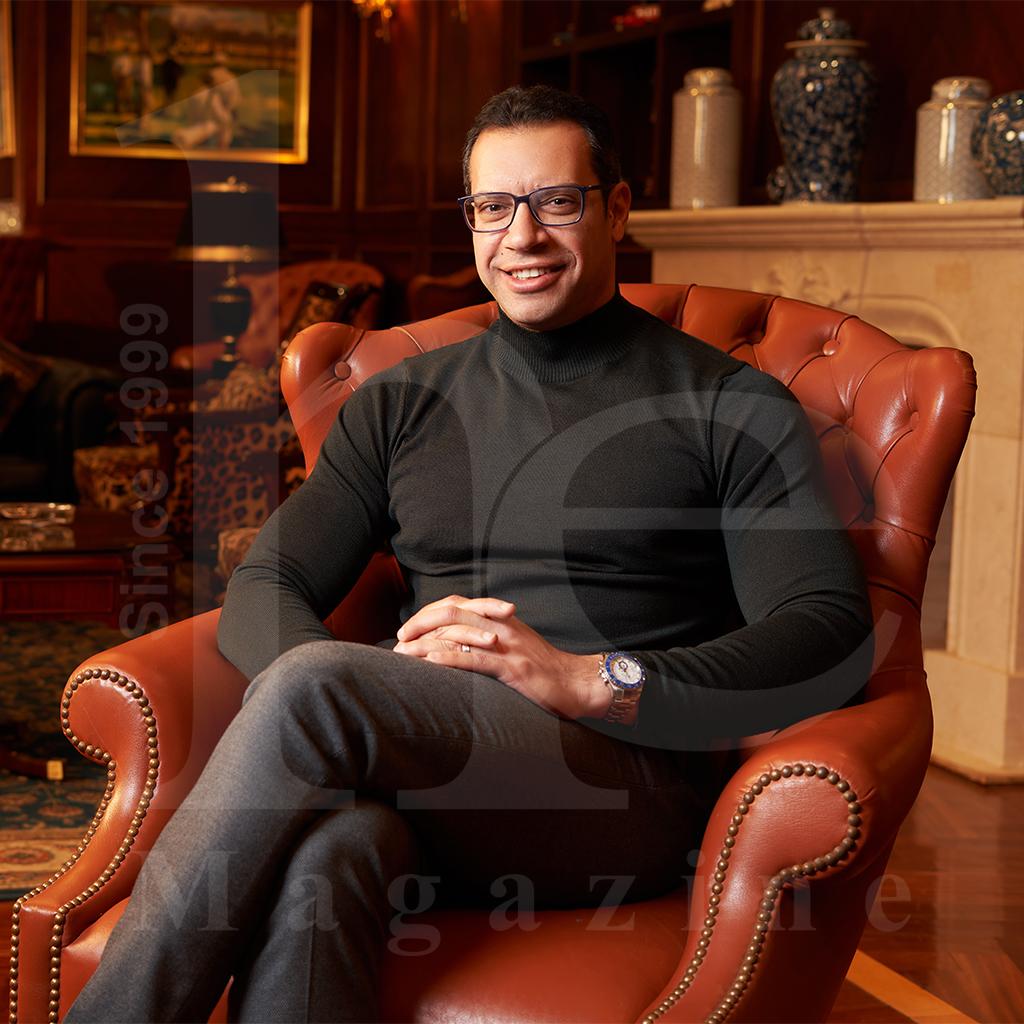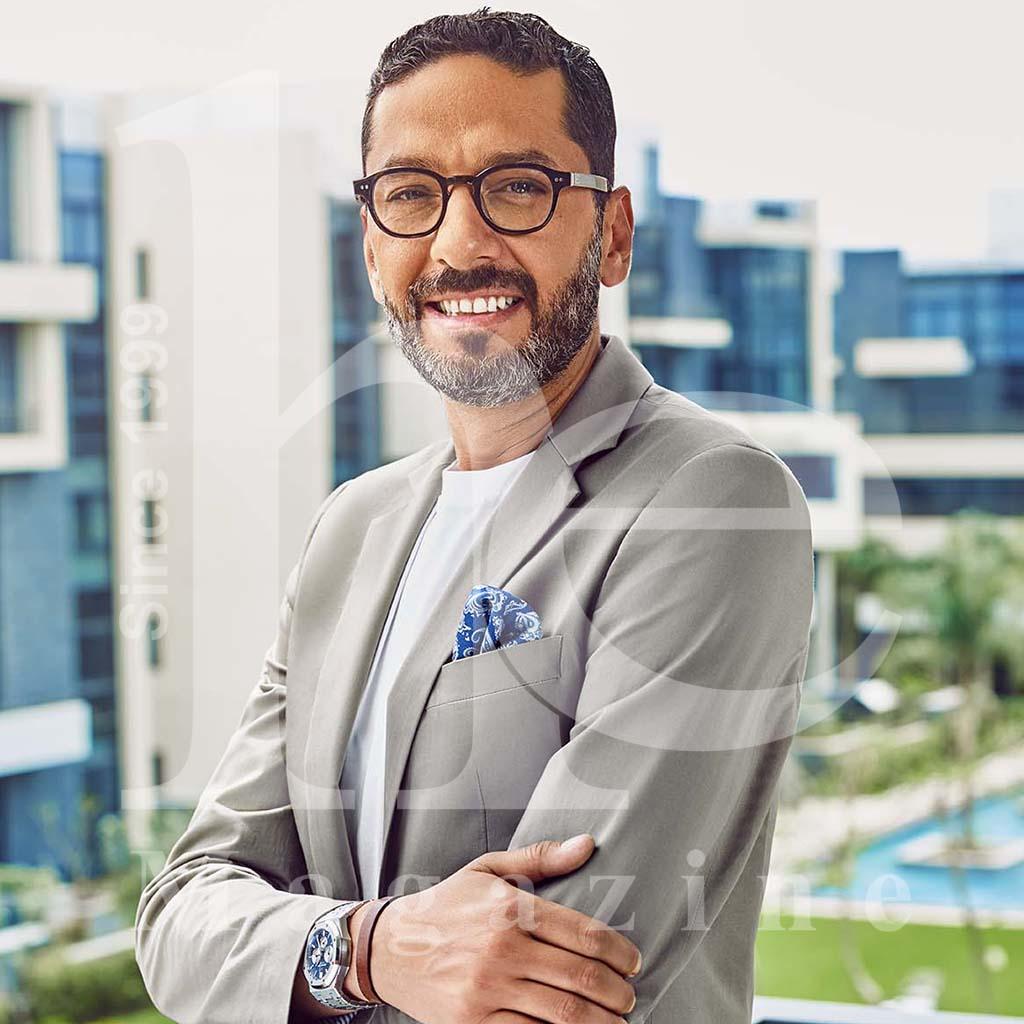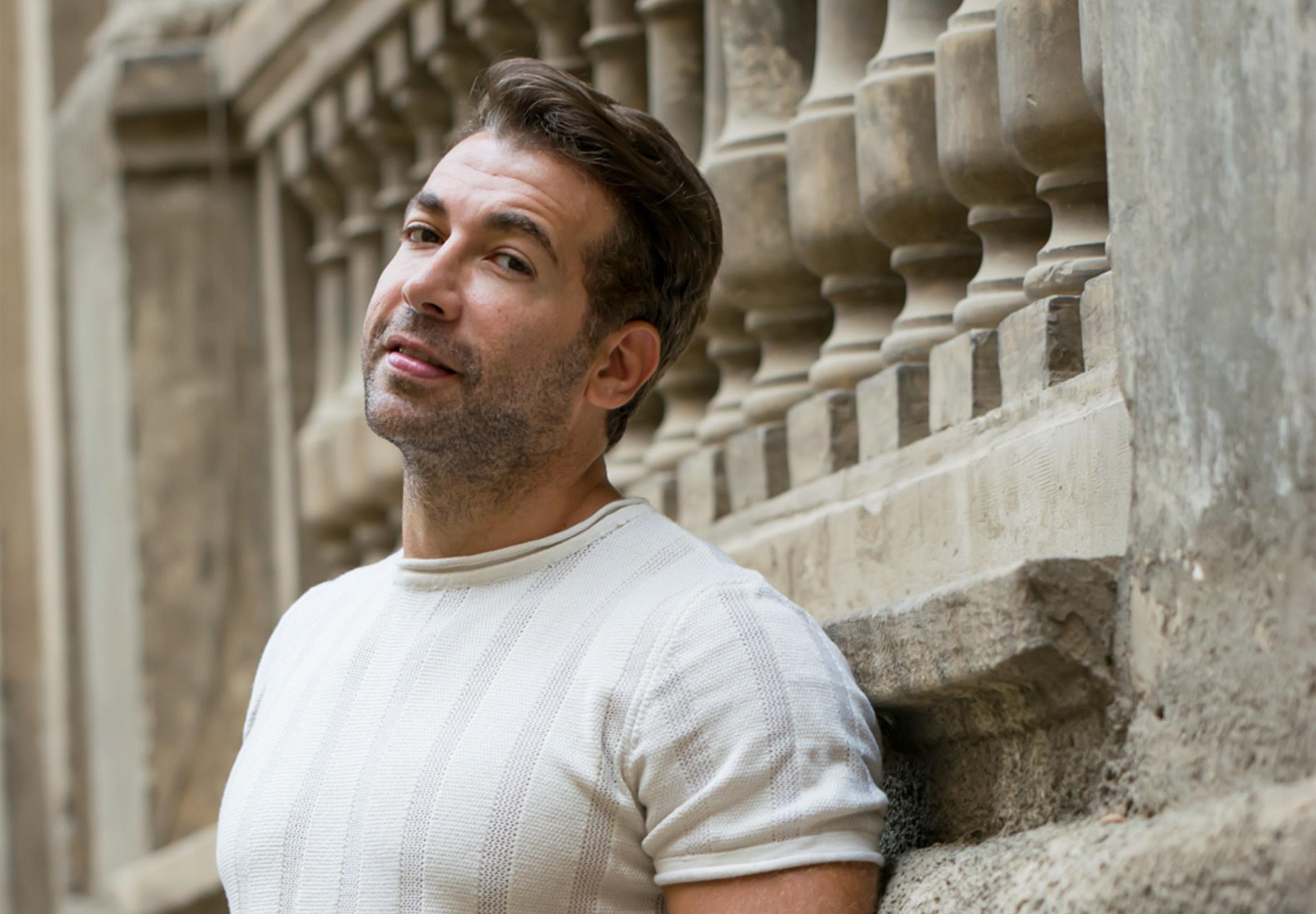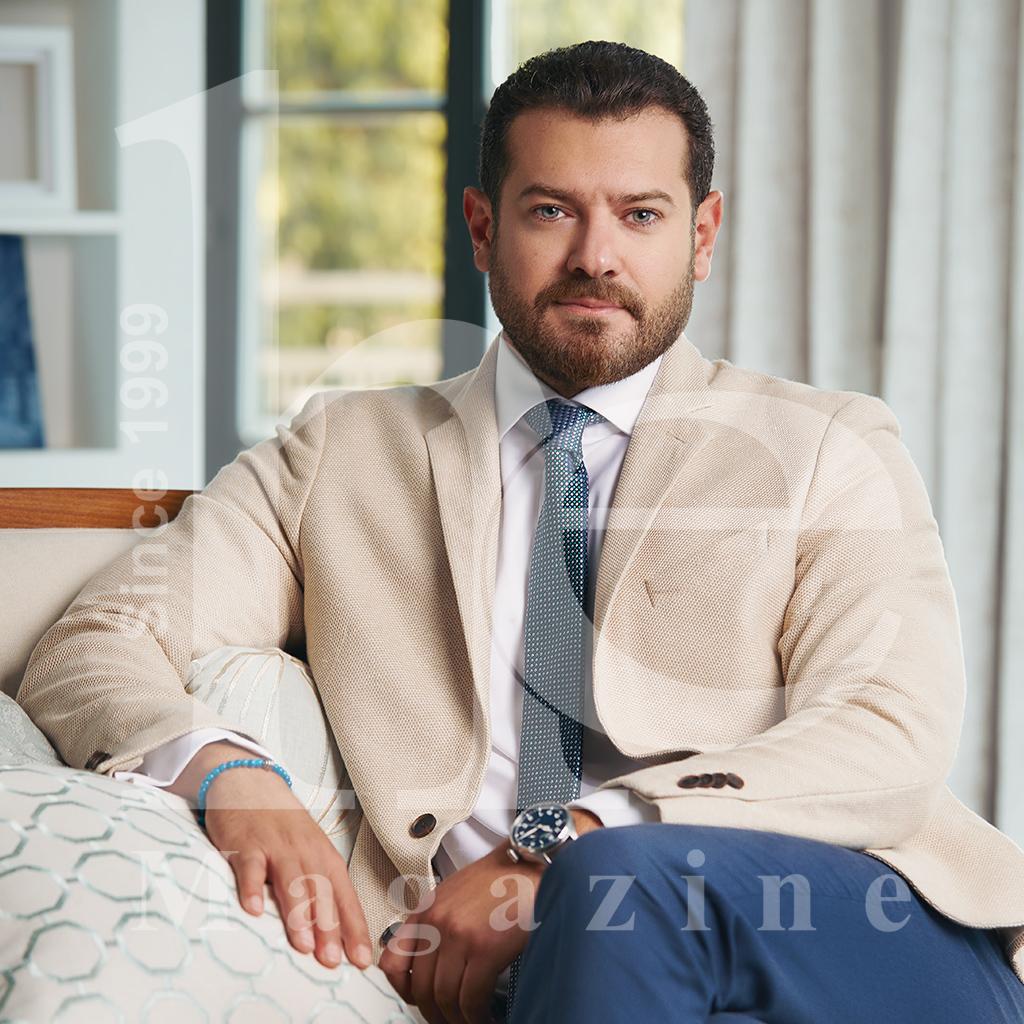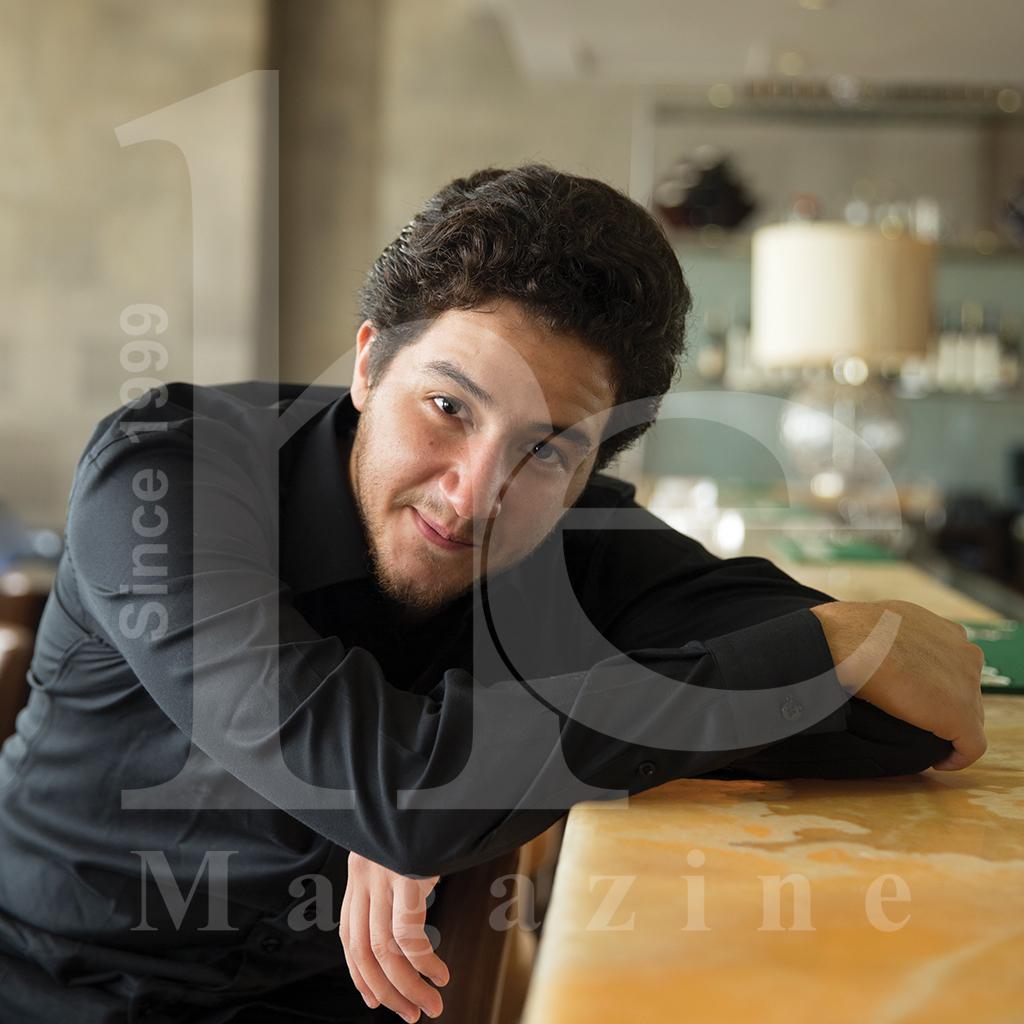
Written by: Jehan Harney
Date: 2017-10-01
As a kid, Ahmed Malek had no idea what he would be in life. One clue, he confesses, “I wanted to do something important… whatever that is!” The kid drove his family crazy playing different roles.“
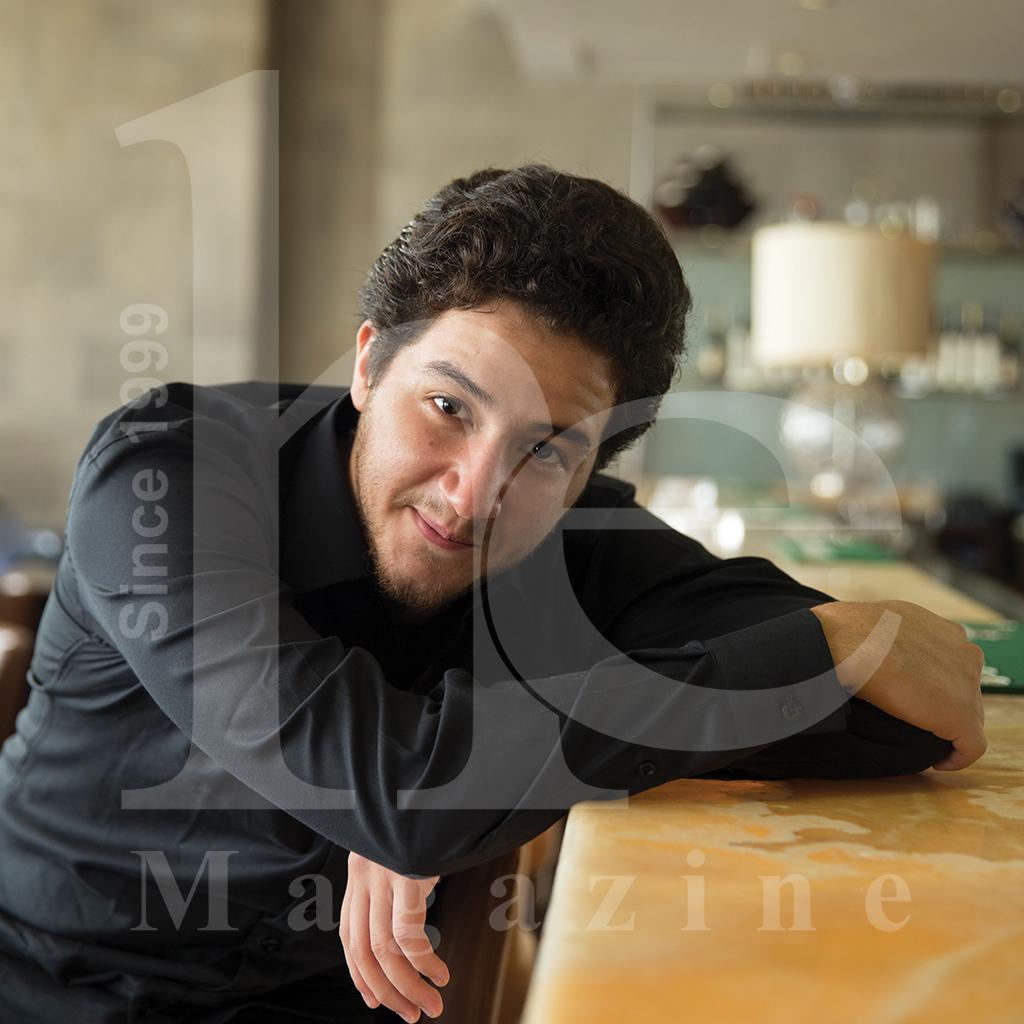
As a kid, Ahmed Malek had no idea what he would be in life. One clue, he confesses, “I wanted to do something important… whatever that is!” The kid drove his family crazy playing different roles. “Sometimes, I played the role of an inventor,” he laughs, “and one month, I played an imam.” Ironically, his childhood fantasy became a reality when Malek recently played that role in Sheikh Jackson, the movie now creating a big buzz around film festival circles internationally.
The 22-year-old has just returned from the Toronto and El Gouna film festivals where Sheikh Jacksonpremiered. The film revolves around an Islamic cleric who experiences a crisis of faith when he learns that his idol, Michael Jackson, has died. Malek plays the role of the sheikh when he was young.
“The story drew me deeper into the character and into myself. It is about identity crisis and the clash between the present and the past… something that many of us universally can relate to,” he says. Egypt had already selected the film for the best foreign-language film category at the next Oscars in 2018. This is Malek’s second Oscar film nomination after appearing in the movie Clashjust two years ago.
This success is a lot to digest for Malek in a short time, but the unshaven actor is keeping it real and does not get “seduced” by all the attention and glamour. “The public glamorizes looks and appearances, which seem to make the commercial career of an actor,” he says, “but I seek pure and honest art for the sake of art itself, not for fame.”
In the early evening, he apologetically arrives a few minutes late for our interview at a cafe by Thawra Square near his home in Mohandessin. Malek just finished a six-hour class in contemporary dance as part of a three-year program at the Cairo Contemporary Dance Center. “Dance, Malek?” I ask, to which he replies, “I want to be better connected with my body, my muscles, and my movements. This is very important for acting.”
After a long day, the actor with the geeky eye glasses and untamed curly hair is relieved to be relaxing on a comfy velvet couch as we speak. He takes a sip of a watermelon smoothie and smiles, “I never expected all this to happen. I was just a kid who liked to play roles at home. I believe, though, that acting chose me.”
His uncle liked Malek’s impersonations and role playing, so he took him to a casting agency to audition for commercials. “I loved being on camera for the first time and on location even if it took hours and hours for just one shot.” However, this wasn’t easy on his family. His pilot father was somewhat against it. “You are wasting your time,” he repeatedly told Malek. The son sympathetically explains, “It is understandable he wasn’t happy with me waiting in commercial shoots for 8-12 hours when I was just a little kid who had school.”
But it all changed when he saw his son’s performance in Al-Jama’ah, an Egyptian series on the history of the Muslim Brotherhood group in Egypt and their ambitious plans to reach power. Malek played the role of the young Hassan El-Banna in 2010.
The brother of four siblings enjoys touring film festivals. “I love to learn more from the critics’ feedback and from attending film lectures. I also, of course, love to see great films from around the world,” he adds, “but I don’t like to see myself on the screen.” This is “very overwhelming,” he frowns. His phone rings. He silences it and then reflects. “I am shy and too critical of myself, but I can’t help it.”
Amid all the attention in festivals and from the public, Malek likes to feel “grounded and supported by family and real friends throughout this journey.” He actually missed part of his dance class today at 9am because he stayed up late attending a surprise family party upon his late arrival at home from El Gouna in celebration of his success at the Toronto and El Gouna film festivals. He smiles, “It was so cool to see my childhood friends there and my family… It made the whole thing feel so special and real.”
The restless actor used to hangout in the past with friends, go to parties, and get drunk, but his life took a turn after the revolution. Malek asks the waiter for a Merit cigarette and a lighter as he recounts that fateful Police Day. Malek and another guy had jokingly distributed inflated condoms as balloons to unsuspecting police officers at Tahrir Square. The balloons satirically had positive messages such as “Long Live Egypt” to celebrate the fifth anniversary of the 25 January Revolution. However, after a video of the prank went viral, upsetting pro-police circles that called for their punishment, Malek was reportedly arrested. Egypt’s Actors’ Syndicate suspended Malek, too.

Though Malek believes that “human beings—including actors—have the right to express their political views as citizens,” in the end he concludes, “I learned this issue was too sensitive, and it is better to keep humor or controversial opinions to myself.” Eventually, Malek apologized for his misconduct, saying the video was supposed to be shared within the circle of friends. As he tried to delete it, it had gone viral. The actor was released, but he did not get any work for eight months.
He lights his cigarette and says, “From then on, I decided to keep it to myself more and find joy in reading, learning, and watching a good movie.” Malek also has tremendous fun working with his co-actors. During the Toronto International Film Festival, he had fun with Fisho—his nickname for Ahmed Al-Fishawy, his friend of three years. “We used to talk to each other in public like peasants and laugh a lot at each other,” he smiles as he exhales slowly and watches his cigarette burn further. A tattoo is seen on his right wrist depicting the word “why” in Arabic. He laughs, “I never stop asking myself why… why I do anything.”
In hisdeep journey of questioning, seeking, and learning about art, Malek realizes there are “faces and masks” in acting. He explains, “Now, I am trying to get rid of the mask, which is about playing a character from the outside… I seek to do the opposite,” referring to the book A Dream of Passionby Lee Strasberg on the development of the method. Malek wants to be inspired by the teachings of Konstantin Stanislavsky that have changed his life and wants to learn his techniques in the art of acting. Malek references a quote from the book that moves him and deepens his sense about his journey: “The human being who acts is a human being who lives,” suggesting this is what acting is like for him personally.
“I seek an honest performance by truly feeling the character I play, building its history and biography, to act sincerely out of that place of the character.” Interestingly, as he extinguishes his cigarette, a thespian tattoo is seen on his left wrest. It shows two faces: one smiling and another frowning. Sometimes, Malek travels to spend months learning from the people he is imitating to find out “who they are, how the talk, and how to use their lingo in order to act authentically from the heart as the character.”
He did this in Clash. The movie was set entirely in the confines of a police truck, where a number of detainees from different social and political backgrounds, including Muslim Brotherhood members, pro-army supporters, and others, are brought together during the turmoil after the ousting of former president Mohammed Morsi from power.
In the film, Malek played the role of a local DJ from a low class. “I prepared for it two months in advance. I only listened to shaabi[folk] music,” he says. “I hung out with similar local DJ’s and even brought them to the set.” He remembers when he did not take a shower for more than two weeks. “I smelled,” he laughs, but ultimately he “managed to feel the character better.” The internationally, co-produced drama film was officially selected by the 2016 Cannes Film Festival and was the opening film of its Un Certain Regard section.
In the same year, he acted in the big screen adaptation of the best selling Egyptian novel HEPTA. It features a social psychology specialist who decides to give one last lecture about the simple question of “How do we love?”. The film answers this question by showing seven “stages of love” through seven stories. Malek was cast with many well-known Egyptian actors in the movie, which was chosen as one of the opening and closing films at the 6th Malmo Arab Film Festival in Sweden. It was nominated for the Best Feature Film Award. It won the Audience Award at the Annual Arabian Sights Film Festival in Washington, DC.
Prior to Clash, Malek received a good foundation in acting, not from school, but from El-Gezira 2. “It really gave me a more in-depth understanding of what acting really entails. This is when I wanted to know more about the craft.” The film about a man who returns to El-Geziraafter a decade of imprisonment only to find a lot has changed and that he must fight to regain what was his was directed by Sherif Arafah and starred Ahmed El-Sakka.
All-in-all, Malek has been in eight movies, five TV series, and continues to work on more by teaching himself the art of acting. Because of the time commitment, Malek says he couldn’t attend the two main institutions in Egypt that teach acting: The High Institute for Cinema and the American University in Cairo. For now, he reads extensively, attends actor workshops, and studies media management at the business school of an EU online university, so he knows how to “manage his production company someday”.
Of course, the busy actor and hard working student doesn’t have time now for love, though he acknowledges he had a long distance relationship for more than two years with an Egyptian woman who studies at Cambridge University. “We left each other two years ago,” he says as he puts out another cigarette. “I always have problems in relationships… I am moody, I guess… I am not settled.” He continues, “I was really attracted to her intelligence. We shared similar views on life, politics, and many things.”
But the actor, who is very critical of himself and his work, hopes that someday he can have his own family. Towards the end of our interview, duty calls. Malek looks at his watch, reminding me he has a five-hour acting class at the Swiss Club in 20 minutes. Malek looks forward to his new two-month method acting workshop with American instructor Gerald James from Los Angeles. After a long day of dance class, and this interview, Malek looks tired, but his insatiable passion for learning truthful acting is leaving him buzzing with energy for this actor’s workshop and beyond.
